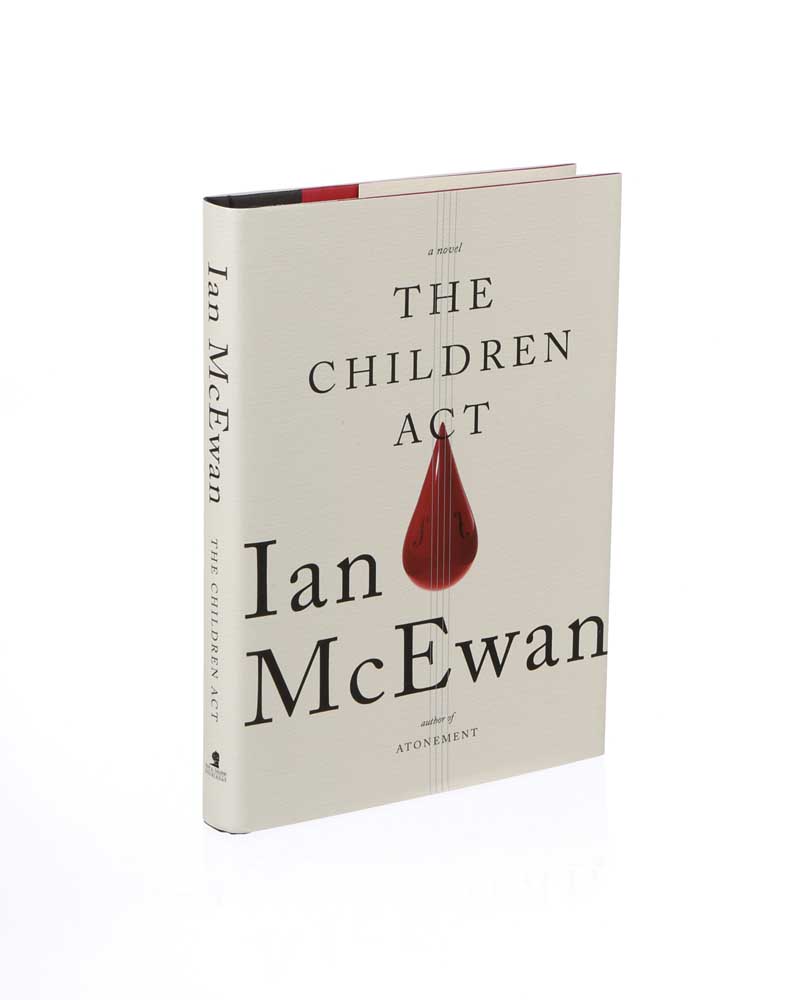’The Children Act’: cast adrift in a realm of choices
Published 12:00 am Sunday, September 21, 2014

- The cover of the book ìThe Children Act,î by Ian McEwan and published by Doubleday, in New York, Aug. 28, 2014. The new novel concerns a ruling that a High Court judge must make on the case of a teenager who has refused a lifesaving blood transfusion on religious ground. (Alessandra Montalto/The New York Times)
“The Children Act” by Ian McEwan (Nan A. Talese/Doubleday, 221 pgs., $25)
In many Ian McEwan novels, there is a moment of crisis or extremity that shatters his characters’ lives, reveals the innermost workings of their hearts or triggers a reassessment of everything they’ve believed.
Trending
In “The Child in Time” (1987), a man’s 3-year-old daughter suddenly disappears during a trip to the supermarket. In “Enduring Love” (1998), a hot-air balloon takes off with a boy trapped in its basket and a would-be rescuer falls to his death. And in “Black Dogs” (1992), a woman, taking a walking tour in southern France, has a frightening encounter with two menacing dogs that “emanated meaning.”
The pivotal moment in McEwan’s suspenseful but very spindly new novel, “The Children Act,” concerns a ruling that Fiona Maye, a British High Court judge, must make on the case of a 17-year-old boy named Adam Henry, who has refused a lifesaving blood transfusion on religious grounds. (He and his parents are strict Jehovah’s Witnesses.) If the judge grants a hospital permission to overrule Adam’s wishes and go ahead with the transfusion, his chances for recovery are decent; if she refuses, and Adam is not transfused quickly, his prognosis is grim: He could die or suffer brain and kidney damage. Fiona’s involvement in the case will not only have a momentous impact on Adam and his family, but it will also mark a turning point in her life, changing forever the way she thinks about herself.
Many of McEwan’s earlier works, like “Black Dogs,” “Enduring Love” and “Saturday” (2005), have been concerned with rationalism and science, and the limits of reason when it comes to grappling with a frightening, chaotic world and the mysteries of the human spirit. Fiona is very much an avatar of that reasoned, logical approach to life. As a judge, she thinks, “she belonged to the law as some women had once been brides of Christ”; she believes in rules and reasonableness and exactitude.
Like one of those Hawthorne characters who is guilty of the sin of intellectual pride, Fiona prizes the mind over the heart. Jack, her husband of 35 years, has accused her of being cold and “no fun”: He abruptly announces that he intends to have an extramarital affair, because Fiona hasn’t had sex with him for “seven weeks and a day,” and he says he needs some passion back in his life. Fiona herself worries that she is “selfish, crabbed, dryly ambitious.”
Immediately after Jack’s alarming announcement and departure from their apartment, Fiona must start dealing with the Adam Henry transfusion case, a case she finds she cannot grapple with tidily through the careful weighing of evidence and precedent. In fact, the combination of her marital woes and her growing emotional involvement with Adam — who reminds her of her own childlessness — will derail the gleaming smooth trajectory of her life, which she has been on since girlhood.
This setup is all extremely schematic, and McEwan’s stilted description of the showdown between Fiona and Jack is almost as implausible and mannered as the ridiculous exchanges between the newlyweds in his artless 2007 novel, “On Chesil Beach.”
Trending
It’s hard to believe that Jack would suddenly blow up their marriage of more than three decades by abruptly declaring his determination to have an affair, or that Fiona would have so little knowledge of his discontent over the years. The confluence of her sudden domestic crisis with the upsetting Adam Henry case feels equally contrived, as though the author were perfunctorily plugging his characters into a freeze-dried story without bothering to try to make any of it feel real.
The narrative picks up when McEwan turns his attention to the developing relationship between Fiona and Adam. McEwan did an inspired job of depicting Briony, the teenage girl in “Atonement” whose impulsive lie results in the shattering of her family, and here he delineates Adam with acuity, capturing the boy’s intelligence, naïveté and instinct for self-dramatization.
Matters do not end with Fiona’s court decision. Adam will try to insinuate himself into Fiona’s life, eliciting a reaction from her that will have fateful consequences for them both. The suspense in the last half of the book (unlike that in the novel’s opening chapters) is genuine, because it stems not from artificially concocted plot points, but because it goes to the question of who Fiona really is, and whether she has learned anything from earlier events about herself or the human yearning for connection.








